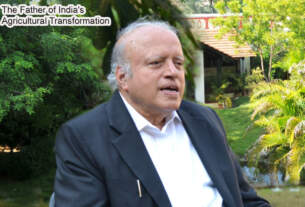Bio-computing, also known as biologically inspired computing or biological computing, is an interdisciplinary field that combines principles from biology and computer science to develop new computational models, algorithms, and technologies. It seeks to harness the inherent capabilities of biological systems, such as cells, DNA, and molecular interactions, to perform computation and solve complex problems.
Principles of Bio-Computing:
- Bio-Inspired Algorithms: Bio-computing draws inspiration from biological processes to design algorithms that mimic natural phenomena. These algorithms often involve concepts such as genetic algorithms, neural networks, and swarm intelligence, which mimic behaviors observed in biological systems.
- Molecular Computing: This approach uses molecules, such as DNA and RNA, as computational elements. DNA computing involves encoding information in DNA strands and using molecular reactions to perform calculations. DNA computing has the potential to solve certain types of complex problems more efficiently than traditional computers.
- Quantum Bio-Computing: Quantum mechanics and biological systems are integrated in quantum bio-computing. Quantum effects observed in biological molecules, such as photosynthesis in plants, are explored for potential computational applications.
- Cellular Computing: Cellular automata and biological cells are used to create computational models. This approach involves simulating the behavior of cells in response to various inputs, allowing for complex computations to be performed.
Applications of Bio-Computing:
- Drug Discovery: Bio-computing plays a crucial role in drug discovery by simulating molecular interactions between drugs and biological molecules. This accelerates the process of identifying potential drug candidates and predicting their effectiveness.
- Bioinformatics: Bio-computing is essential for processing and analyzing large-scale biological data, such as DNA sequencing data. It helps researchers identify genetic patterns, predict protein structures, and understand the underlying mechanisms of diseases.
- Synthetic Biology: Bio-computing contributes to synthetic biology by designing and engineering biological systems with specific functionalities. This includes creating genetic circuits and biological networks to perform computational tasks within living organisms.
- Optimization Problems: Bio-computing algorithms are used to solve optimization problems, such as route planning, resource allocation, and scheduling, by leveraging nature-inspired algorithms.
- Environmental Monitoring: Bio-computing techniques can be employed to create bio-sensors that detect environmental pollutants, toxins, and pathogens. These sensors utilize biological interactions to provide real-time monitoring and analysis.
- Artificial Intelligence: The integration of bio-computing concepts with artificial intelligence (AI) can lead to the development of more efficient and adaptive AI algorithms that learn from biological systems.
Challenges and Future Directions:
- Scalability: While bio-computing offers unique capabilities, it often faces challenges related to scalability and efficiency. Working with biological systems can be slower and less predictable compared to traditional computing.
- Biological Complexity: The complex and dynamic nature of biological systems can make modeling and engineering bio-computing solutions challenging.
- Ethical Considerations: As bio-computing involves manipulation of biological materials, ethical considerations related to safety, security, and environmental impact are important.
- Interdisciplinary Collaboration: Successful bio-computing projects often require collaboration between biologists, computer scientists, mathematicians, and engineers.
In conclusion, bio-computing represents an exciting frontier at the intersection of biology and computer science, offering innovative ways to solve complex problems and advance various fields, from healthcare to environmental monitoring. As technology and our understanding of biological systems continue to evolve, bio-computing is likely to play an increasingly significant role in shaping the future of computation and problem-solving.
bhalakatha
prayas
mind plugin
#bhalakatha #prayas #MindPlugin





